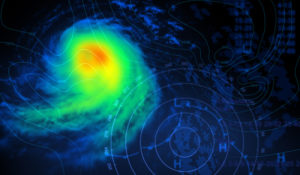 Hurricanes are deadly forces of nature that can cause massive damage when they strike. As you prepare for the next hurricane season, it’s important to know what you need to do to avoid injury when a hurricane or tropical storm strikes. Read on for important hurricane safety tips to help protect your property and your family.
Hurricanes are deadly forces of nature that can cause massive damage when they strike. As you prepare for the next hurricane season, it’s important to know what you need to do to avoid injury when a hurricane or tropical storm strikes. Read on for important hurricane safety tips to help protect your property and your family.
Remove Potential Flying Projectiles
Even a Category 1 hurricane has winds that range between 74 and 95 mph, which can cause any loose objects around your home to become dangerous flying projectiles. Before the hurricane hits, walk around your property to find and put away anything that can become a flying object. This includes patio furniture, trash cans, and gardening tools. It’s also a good idea to trim back any dead or weak tree branches to prevent them from breaking off and becoming projectiles during the storm.
Stock Up on Emergency Supplies
If you’ll be riding out the storm in your home, you must make sure your emergency supply kit is fully stocked. You’ll want enough nonperishable food and bottled water for everyone in your house, a battery-powered radio, flashlights, extra batteries, and a first-aid kit. It’s a good idea to put together your emergency supply kit at the start of hurricane season. If a storm is heading your way, stores might start running low on supplies as people try to stock up at the last minute.
Know Your Evacuation Route
It’s important to make sure you know your evacuation route. As the storm approaches, pay attention to local weather reports, make a plan for where you’ll go if you have to evacuate, and pack a bag with medications, cash, copies of important paperwork, and anything else you need to have on you if you have to leave. If the order comes in to evacuate, leave immediately. Roads will be jammed with traffic and you’ll need to give yourself time to get to a safe place.
Stay Off the Roads After You’re Safe
Once you reach your safe zone, stay off the roads. Other people will be out trying to reach their shelter or stock up on last-minute supplies, and you don’t want to add to traffic and congestion if you don’t have to. During the storm, it’s important to stay in a secure room and away from windows. If the eye of the hurricane moves over your area, stay inside. The lull doesn’t last long, and the storm will resume shortly.
Watch Out for Water
Water is one of the most destructive and deadliest parts of a hurricane. When the hurricane is over, avoid all floodwater. Not only might it be electrically charged from a downed power line, it could also be hiding dangerous debris. A foot of moving water can wash a vehicle away, and 6 inches of moving water can knock a person over. Remember that floods can contaminate tap water, so don’t drink it until officials say it’s safe.
While these tips can help you stay safe during hurricane season, if you’re injured, contact David W. Singer & Associates, P.A. to learn about your rights and get help with your case.


Recent Comments